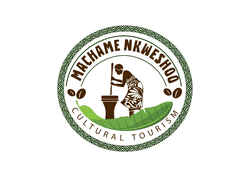Ngorongoro Conservation Area (NCA)
About Ngorongoro Conservation Authority
NCA was established in 1959 by the NCA Ordinance No 413 of 1959 as a multiple land use area, established specifically to promote the conservation of natural resources, safeguard the interests of NCA indigenous residents and promote tourism. NCA is the one of its kind protected area in Africa where conservation of natural resources is integrated with human development.
The main feature of the NCA include the Ngorongoro Crater, The Serengeti Plains that support about 2.0 millions migratory wildlife species of the Serengeti Mara-ecosystem (TAWIRI, 2003) and the catchment forest; the Northern Highland Forest Reserve (NHFR) known as ‘Entim Olturot’ in Maa language. Other important features found in the NCA are the archaeological and palaeontological site located at Oldupai Gorge and the early human foot-prints that were discovered at Alaitole in Ngarusi area. Because of these particular features and the harmonious co-existence between wildlife and people that has existed for many years, NCA was accorded the status of a World Heritage Site and listed as one of the International Biosphere Reserve by the UNESCO’s Man and Biosphere Reserve Programme.
Facts About Ngorongoro
The Ngorongoro Crater under Ngorongoro Conservation Area is one of the most beautiful places in Africa, and certainly with the most spectacular settings of phenomenal splendor.
To be precise, it is breathtaking in its beauty. Covering an area of 8,292 sq. km. the Ngorongoro was established in 1959 as a multiple land use area. Three species of animals co-exist: wildlife, livestock and human beings. The physical features includes: extensive plains, highland plateau, volcanic mountains, scenic craters, as well as a superb mountain forest. The most striking feature in the area is the Ngorongoro crater of course. The first view of it is absolute splendor.
The Ngorongoro Conservation Area covers 8,292 square kilometers. It is one of the three divisions that comprise Ngorongoro District in Arusha Region.
Where to stay
Within the Ngorongoro Conservation Area, with the exception of Simba near the NCAA headquarters, the campsites are all classified as “special campsites”.
This means that they are for exclusive use, and generally have no facilities. Usually they are designed for self sufficient safari operations which bring everything with them. Most are large sites, but a few of them, e.g. on the rim of Empakaai Crater, are designed for small numbers of back- packers. Camping generally is not allowed in the Crater itself. Book campsites through the NCAA headquarters office or in Arusha-Ngorongoro Information Center.
There are luxury lodges situated within and outside the Ngorongoro Conservation Area. Names and contacts of those lodges are:
| Gibb’s Farm P. O. Box 280, Karatu |
The Octagon Safari Lodge P. O. Box 129 Karatu |
| Acacia Farm lodge ***** P. O. Box 277 Karatu |
Ganako Luxury Lodge **** P. O. Box 15 Karatu |
| Ngorongoro Rhino Lodge Box 776, Arusha |
Ngorongoro Serena Safari Lodge Box 2551, Arusha |
| Ngorongoro Sopa Lodge Box 1823, Arusha |
Ngorongoro Wildlife Lodge P.O. Box 877 Arusha |
| Ndutu Safari Lodge Box 6084, Arusha |
Ngorongoro Crater Lodge P. O. Box 751 Arusha |
| Lake Manyara Serena Lodge | P. O. Box Arusha |
| Lake Manyara Hotel | P. O. Box Arusha |
|
Ngorongoro Farm House P. O. Box Arusha |
Kifaru Lodge P. O. Box 12 Karatu, P. O. Box 1187 Arusha |
| E Unoto Retreat P.O. Box 15234 Arusha Web: www.maasaivillage.com |
Bougainvillea Safari Lodge P. O. Box 342 Arusha Web: www.bougainvillealodge.com |
BOOK THIS PACKAGE
PRE-BOOKING QUESTIONS
[caldera_form_modal id="CF5995c2d362d72" type="button" width="200"]PRE-BOOKING FORM[/caldera_form_modal]

